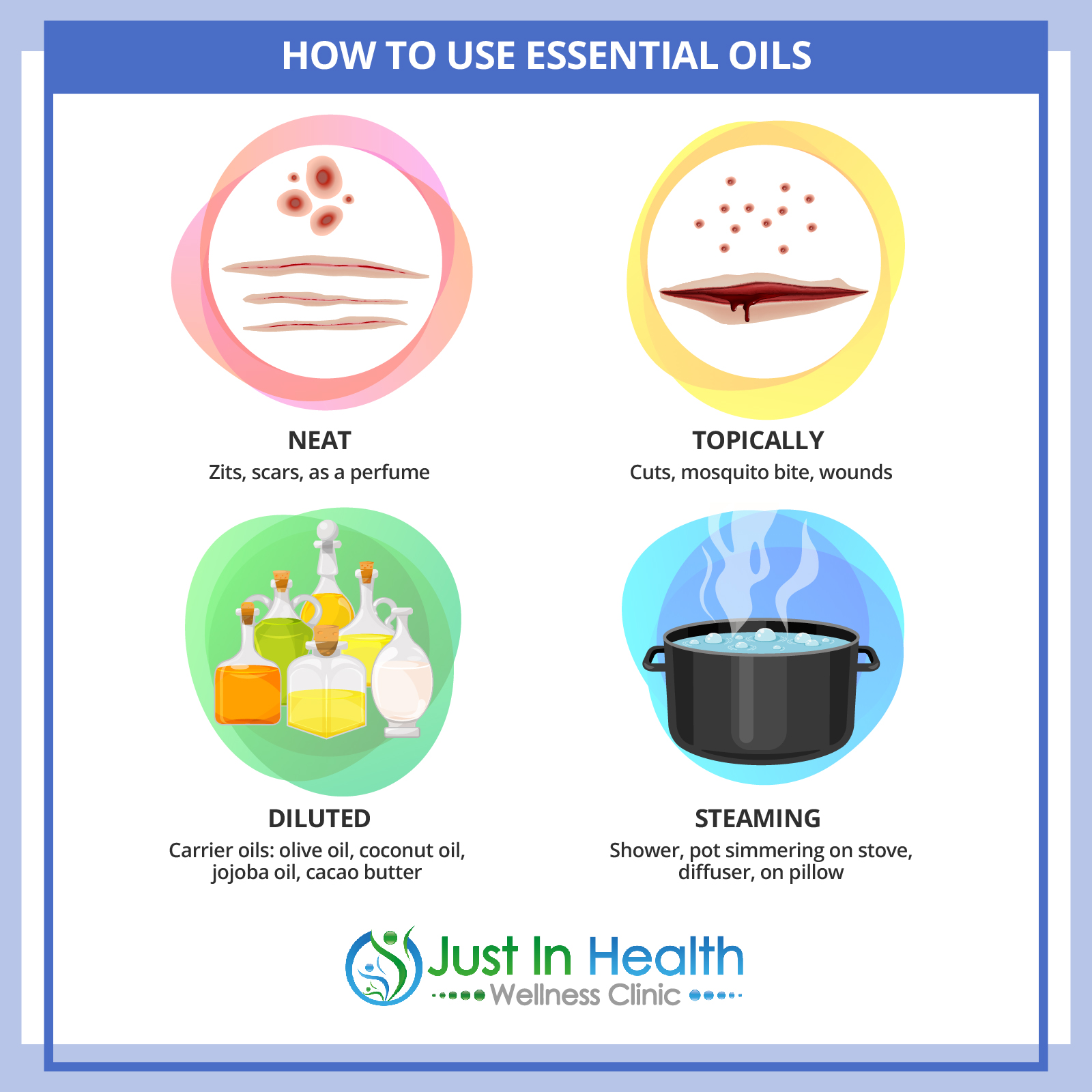

By Dr. Justin Marchegiani
Essential oils are aromatic compounds extracted from plants, commonly through steam distillation or cold pressed methods. An essential oil from one plant may contain anywhere from a dozen to several hundred individual compounds. Even trace amounts of these components are important pieces of what makes each oil unique.
Essential oils have been used across the world for centuries. Ancient Egypt is commonly referred to as the birthplace of essential oils, where these plant extracts were used for cosmetic and medical purposes as early as 4500 BC. Aromatherapeutic uses of essential oils in traditional Chinese medicine date back to the period between 3000 and 2000 BC.
Just about every essential oil has antimicrobial properties and have been scientifically proven to demonstrate anti-fungal, anti-bacterial, and anti-viral activity. In fact, essential oils have even been efficient in fighting drug resistant strains which conventional antibiotics have failed to treat!
In fungal pathogens, essential oils are able to cross the cell wall and disrupt ATP assembly. In bacterial infections, essential oils destabilize and help break down the membrane integrity. Essential oils have antiviral activity against RNA and DNA viruses, such as herpes (types 1 and 2), dengue virus, influenza (the flu), poliovirus, and coxsackievirus (hand, foot, and mouth disease).

Lemongrass, eucalyptus, peppermint and orange oils were tested against 22 bacteria, including Gram-positive and Gram-negative– they were effective against all 22 bacterial strains.
Click here to consult with a functional medicine doctor and start feeling better today!
Oregano, thyme, clove, lavender, clary sage, and arborvitae were effective against the bactiera Escherichia coli, Salmonella typhimurium, Yersinia enterocolitica, Staphylococcus aureus, Listeria monocytogenes, and Enterococcus faecalis, Bacillus cereus, Arthrobacter protophormiae, Pseudomonas fragi, and fungi Chaetomium globosum, Penicillium chrysogenum, Cladosporium cladosporoides, Alternaria alternata, and Aspergillus fumigatus.

With the overuse of antibiotics leading to a rise in drug resistant strains of bacteria, essential oils offer a natural and effective treatment. Essential oils should be considered as an effective cleaning agent in household cleaners, and as a holistic treatment for fungal, bacterial, and viral infections.
Click here to consult with a functional medicine doctor and start feeling better today!
References:
https://www.ncbi.nlm.nih.gov/pubmed/8893526
https://www.ncbi.nlm.nih.gov/pubmed/9218354
https://www.ncbi.nlm.nih.gov/pubmed/12678685
https://www.ncbi.nlm.nih.gov/pubmed/31195112
https://www.nature.com/articles/s41598-017-08673-9
https://www.ncbi.nlm.nih.gov/pmc/articles/PMC5694587/#sec2title
https://www.britannica.com/topic/essential-oil/Chemical-composition